Sometimes, Just Ask
In Spring 2020 I was on sabbatical, and after some time in southeast Asia the next stop was intended to be Málaga, Spain, which I would treat as a home base for running around the western part of the Mediterranean. Well, we all know what went down in March 2020, so the Málaga plans didn’t come to fruition for another four years.
Southern Spain offers both mountains and an ocean. Its mountains are protected by several national parks and its entire coastline is considered public domain; the latter provides authority for government to address coastal impacts from weather, such as erosion, and of course a publicly held coastline assures broad access for people to the beach.
Oftentimes I travel to feel acutely independent – the value that is arguably my strongest – and I like the feeling of anonymity wandering around a city while people go about living their lives. I also generally love problem solving, and traveling independently is often a steady barrage of small everyday problems to solve: finding buses and trains, buying groceries at a super market, locating trailheads, and so on. Most of it is always familiar in concept, but the details often differ, and then you’re holding up the entire line at the supermarket as you race back to weigh your produce and print a label from the scale.
When I’m thinking about travel options, I’m usually then also thinking about trails. Something about narrow pathways of dirt and rock has enamored me for awhile, though I’m unsure about the origins of it. I can attribute an affinity for time in nature more generally to childhood summers spent at a rural Minnesota lake cabin, so maybe that set a foundation from which I found a love for trails.
For as much diversity as we have on this planet in how people live, work and play, I absolutely love that much of the world shares and values a simple concept: give people places to walk in nature.
Southern Spain has a lot of trails, and a lot of those trails are in mountains with mild climates, and that, well, that just makes me happy. And while I’m not much of a beach person, I love the unstressed and informal vibes of beachy places, so a place with both mountains and beaches checks a lot of travel boxes. And it’s Spain, so, there’s tapas. Or one might say, on tapa both mountains and beaches, Spain has good food. Say that last line aloud, if needed. Then, accept my apology. I have no self-restraint when I see such opportunities.
I started in Málaga, the largest city on the Spain’s southern coast. It was established almost 3,000 years ago, so it’s seen some stuff and been through a roster of various rulers. I visited a few castles and cathedrals despite my inability to enjoy such sites, but I don’t want to be held accountable for moments in the future when someone is aghast that I went to Málaga and didn’t see A, B and C.
I took care of some basic life stuff while in a big city, such as finding peanut butter and getting a haircut. On the latter, the Argentinian that cut my hair worked for a summer in Steamboat, Colorado where I spend a decent amount of time, and we talked about the fish tacos on the menu of the restaurant where he worked and I’ve been to several times. Just a reminder there are more than eight billion people are on this planet.
From Málaga it was onward to Nerja and Frigiliana. Nerja is a coastal town with coastal vibes, and Frigiliana is a few kilometers up the hill and a gateway to a national park. The lack of any obvious space for constructing homes didn’t stop Frigiliana from becoming a town of more than 3,000 people, because you build homes into the sides of cliffs, as has been done throughout the Mediterranean. Picture the Amalfi Coast in Italy, the white and blue cliffside developments on Greek islands, others. Frigiliana’s has the quintessential tiers of white-washed high-density apartments and homes, narrow cobble stone paths, tiny little cups of coffee, and so on.
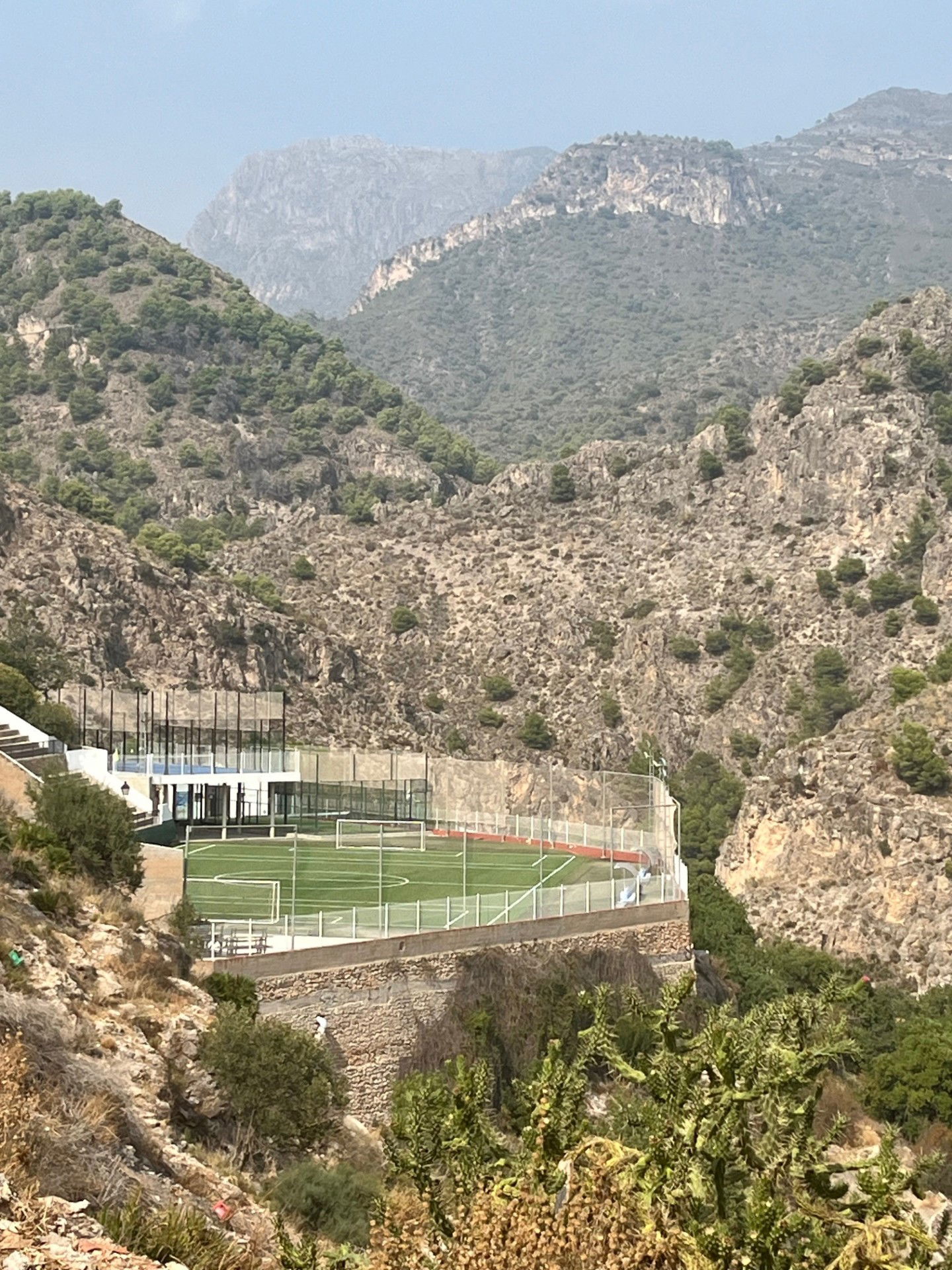
And it has a lot of trails given its location adjacent to the Sierras de Tejeda National Park which protects dozens of rugged granite mountains. There are miles and miles, or kilometers and kilometers, of trails. Its highest peak – La Morma – is upwards of 6,500 feet and also accessible by trail. With the coast only a few miles away, most of its elevation is on display, and it creates for a real dramatic landscape. Once above tree-line in these mountains, and if south-facing, it is a clear shot to the sea and somewhere in the distance, Morocco. The contrast is momentarily baffling. I live in a state also with big mountains, and the nearest coast is more than a thousand miles away.
So I ran, predictably so. The tread, the unevenness, the relentless ups followed by downs followed by more ups, it all reminded me of Colorado trail running, until I would see the ocean. It felt both familiar and unfamiliar, which is sometimes a travel sweet spot. With enough familiarity, your mind can rest from some of the persistent problem-solving and processing. With enough unfamiliarity, your curiosities are satiated.
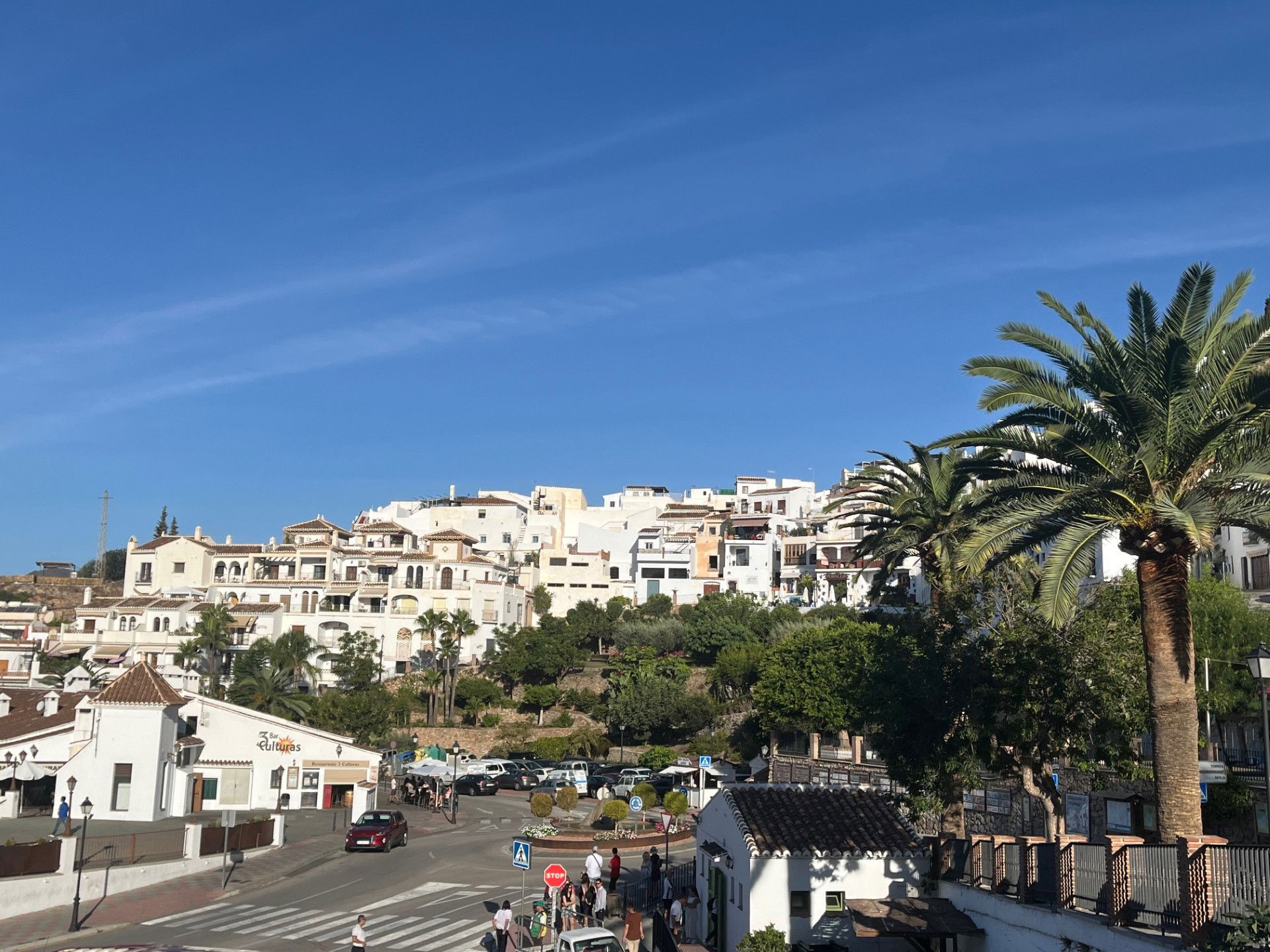
Frigliana was beautiful, though it did force me into some reflection and mild dissonance about whether people such as myself are inadvertently nudging places in directions maybe they don’t want to go, or to go as far as they have. Busloads of tourists are dropped off in Frigiliana every morning and picked up for the return trip later, seemingly without much direction for what to do other than meander. I assume gelato and trinket shops weren’t always the basis for Frigiliana’s economy, but they seem to be so now, at least during the April to October high season. There was something in Frigiliana before there was tourism, but having spent 10 days there, I didn’t learn what it was. Online I learned that it hosts a highly respected and recognized festival celebrating Christian, Jewish and Muslim religions (Festival de las Tres Culturas) because of the history of the region with all three, something I wish was more apparent in Frigliana given the need for the world to better co-exist with each other.
I’ll end this post about an instance that still catalyzes feelings I can’t name. I had signed up for an overnight boat trip that included an opportunity for exploring caves via sea kayak. The novelty of that activity is enough, but I also find that these kind of trips help guarantee social interaction, which you have to be pretty intentional about in solo travel, if you want it. The operator asked if I would be willing to share a state room because they had another solo traveler, and in boat world, space is a premium so it was a reasonable ask. I figured its only for a night, and I’d really only be sleeping and nothing more in the room, so I agreed. The operator put us in touch, so we could communicate in advance if we wanted.
A few days later, he had to cancel his trip. The conflict between Israel and Hezbollah escalated again and had moved into Beirut. He is Lebanese, his flight was from Beirut and the airport was now closed. His parents were displaced due to warnings about likely bombing targets, and he needed to help them resettle. As a nurse, he also didn’t feel right about leaving knowing his skills might be needed. I asked him if he felt safe, and he responded thinking about personal safety too much leads to panic, so he focuses on taking care of whatever needs to be taken of that day.
This conversation was all via an exchange on WhatsApp. Most days thereafter he would send a short update, often with a matter-of-fact tone of what occurred overnight. The conversation felt odd but not misplaced; I generally assumed the daily updates were somehow helpful to him. I have enough life experience to usually know what to say in most situations, but obviously not this one. I would start a reply, and then a sequence of pauses, revisions and rewrites would commence, as though with more thought, I would know what to say to someone enduring warfare.
Stop thinking. Just ask. He's a self-aware type of person, something I detected when our conversation was only about sharing a room on a boat. He had an answer to my question right away.
I’m stopping the story here, because I don’t feel like anything additional about his story should be fodder for a story of my own. The point in sharing this conversation is a reminder to 1) have gratitude if you live in a place that is stable and safe, and 2) sometimes, just ask.
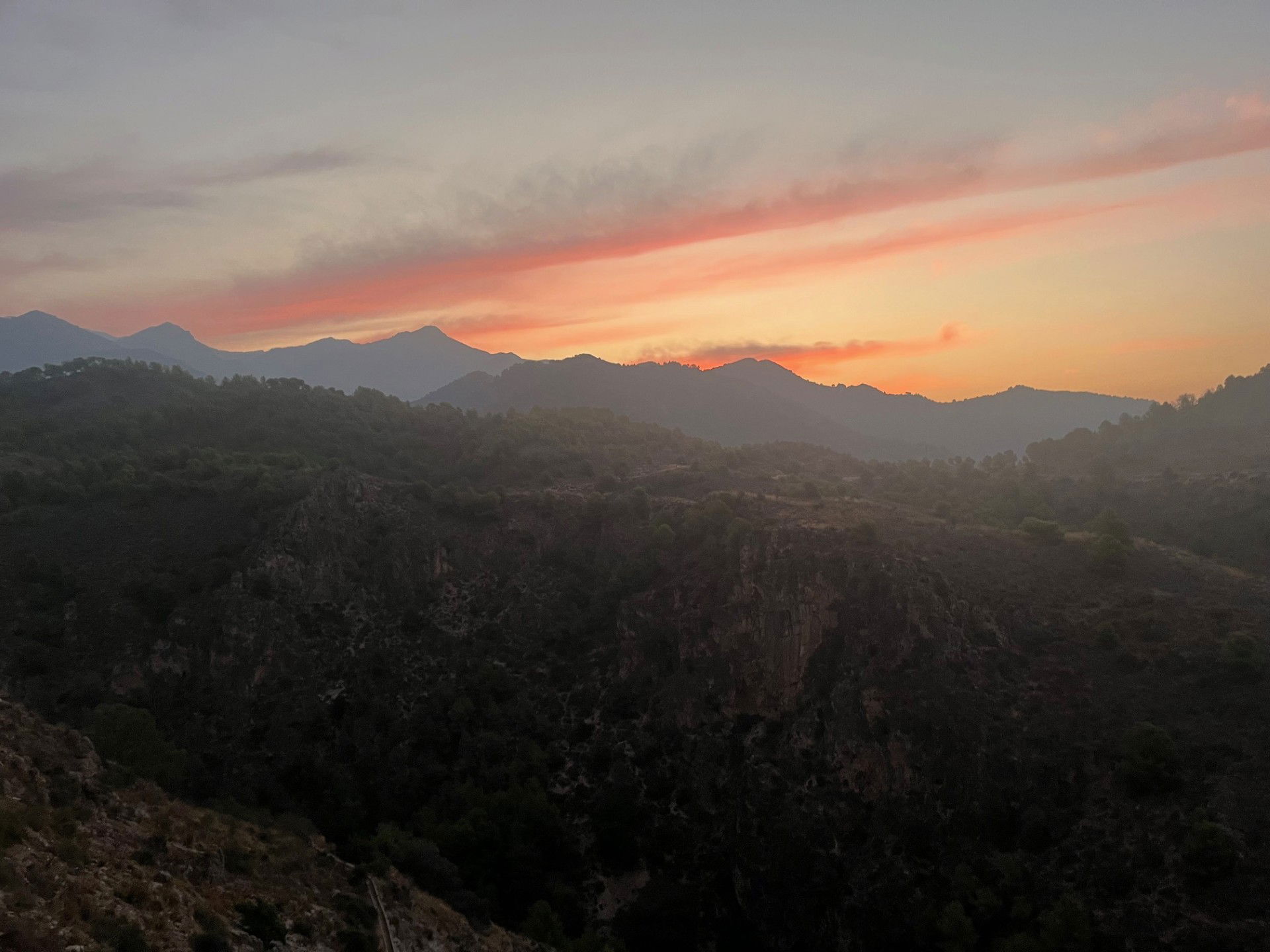
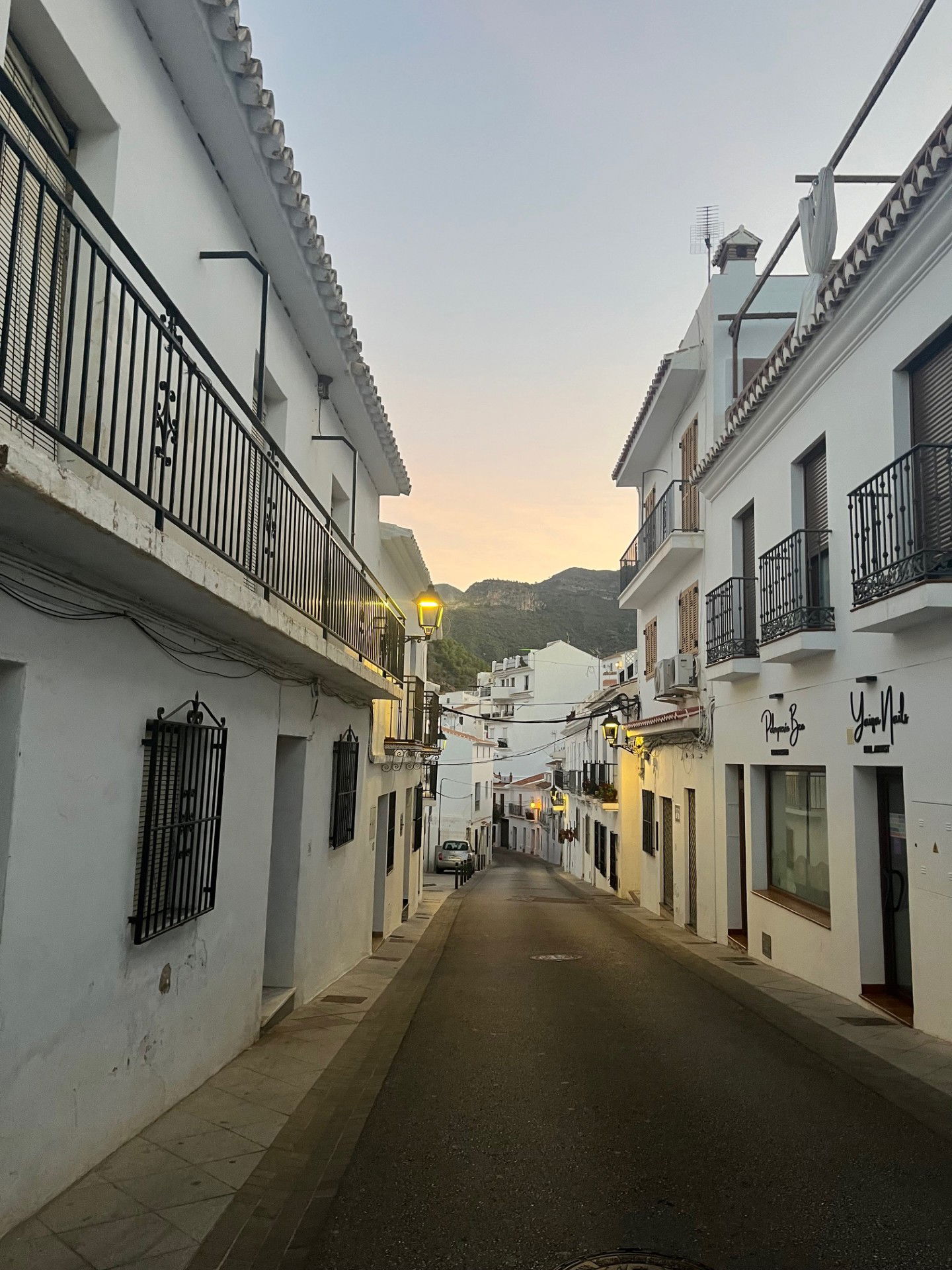
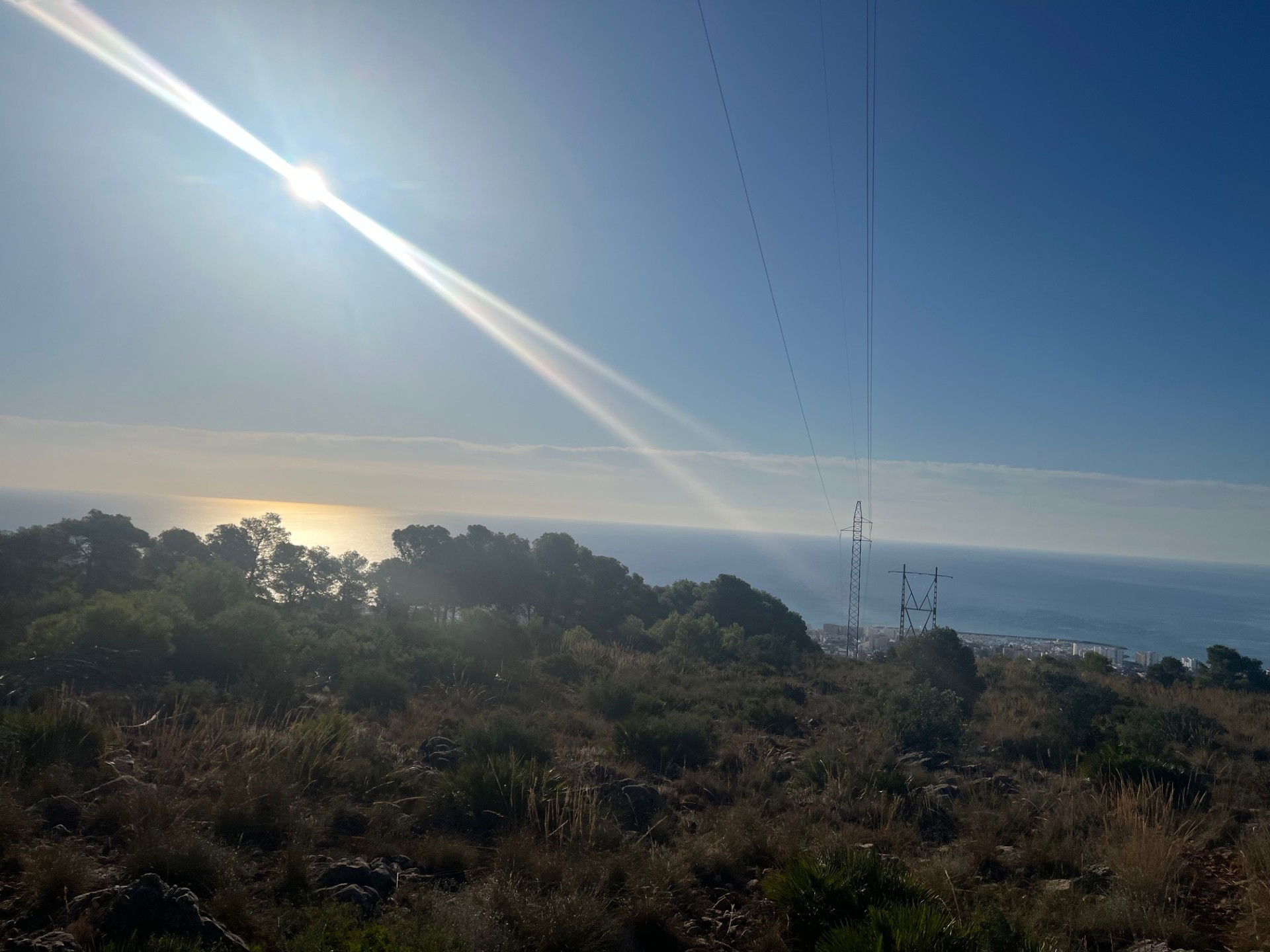
October 2024